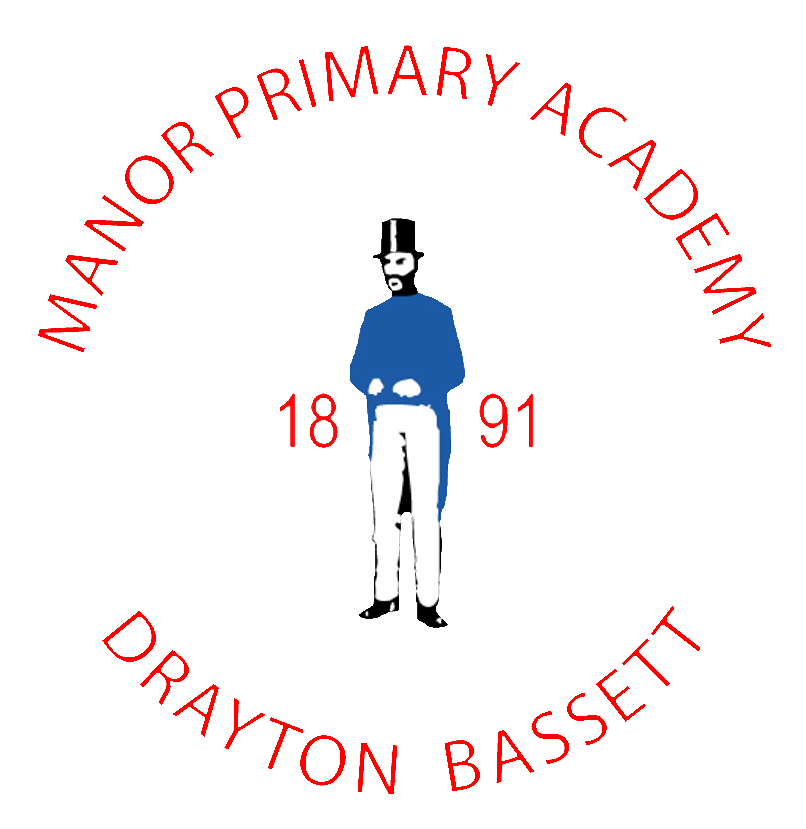Reading
Celebrating a Love of Reading and Generosity: A Heartfelt Thank You to Our Parents
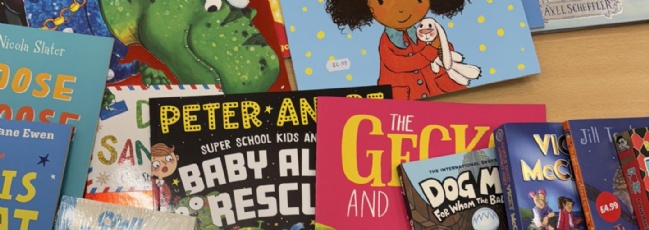 We are thrilled to announce that our recent fundraising initiative has been a resounding success all thanks to the incredible generosity of our parents and families of our pupils.
We are thrilled to announce that our recent fundraising initiative has been a resounding success all thanks to the incredible generosity of our parents and families of our pupils.
The Book Fair is Coming to School
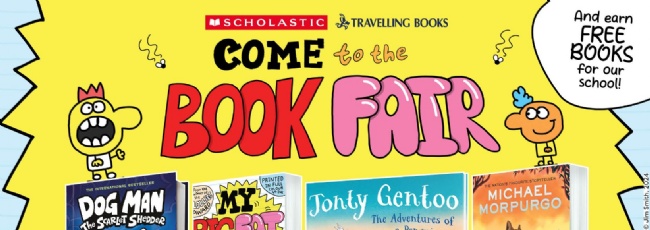 Exciting news - Scholastic Book Fair is coming to school on Thursday 28th November for four days.
Exciting news - Scholastic Book Fair is coming to school on Thursday 28th November for four days.
A Lesson in Poetry
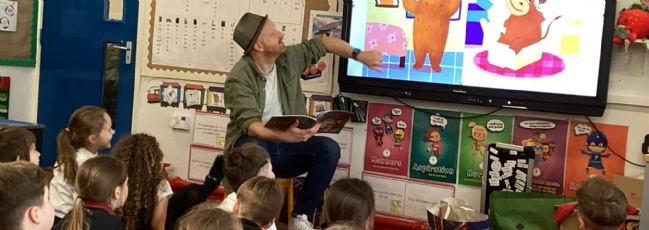 What a wonderful start to our week when Daniel Thompson, a local poet and author, visited our school to deliver some engaging and fun poetry lessons.
What a wonderful start to our week when Daniel Thompson, a local poet and author, visited our school to deliver some engaging and fun poetry lessons.
Book Day Competition
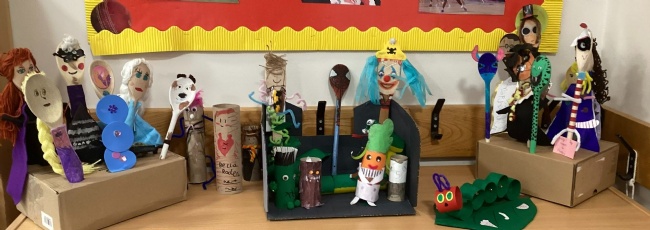 Well done to everyone who entered our Book Day competition and have a look at the wonderful entries....
Well done to everyone who entered our Book Day competition and have a look at the wonderful entries....
Book Day Celebrations!
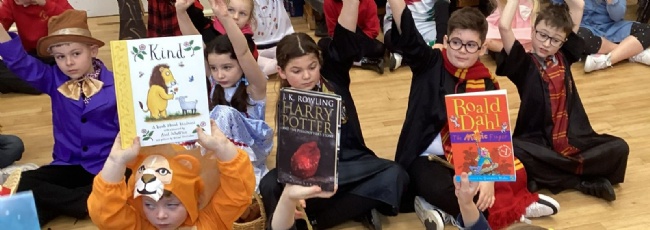 What a great sight it was this morning to see so many storybook characters coming to school.
What a great sight it was this morning to see so many storybook characters coming to school.
Phonics and Reading at Manor Primary Academy
Phonics
In Reception, Year One and Year Two, the teaching of early reading is primarily taught through daily phonics lessons. At Manor, we follow Little Wandle Letters and Sounds where a high quality systematic synthetic phonics programme is followed and children are taught consistently to use phonics as the route to reading all unknown words. All graphemes that are taught are practised in words, sentences and fully decodable books. For this, we use Collins Big Cats Letters and Sounds books that are decodable and match each letters and sounds phase. Children who are not keeping-up with their peers will be given additional practice immediately through keep-up sessions.
Our aim is for our children to learn to read as quickly as reasonably possible, so they can move from learning to read, to reading to learn, giving them access to the wider curriculum and a love of reading.
Click the links below to see the sounds that your children learn in each phase and year group.
For more information on how we teach phonics, please click here and/or see the video and documents attached below.
An introduction to Little Wandle
Please click here to go to the parents section of the Little Wandle webpage to view the resources that will help you support your child with saying their sounds and writing their letters. There are also some useful videos so you can see how they are taught at school and feel confident about supporting their reading at home. Find our full Reception and Year 1 teaching programme overview here to see what your child will learn and when.
Phonics Parent Information for each phase.
- Phase 2 Grapheme Sheet.pdf
- Phase 2 Grapheme Sheet 2.pdf
- Phase-3- Graphemes .pdf
- How-to-say-Phase-3-sounds
- How-to-say-the-Phase-5-sounds
- Capital_letter_formation
- Phonics-Long Term Overview.pdf
Early Reading
In addition to daily phonics, children in Reception, year 1 and year 2 will take part in three group reading sessions each week. Children will assessed every 6 weeks and will be grouped based on their phonics knowledge with no more than 6 pupils per group. These sessions will be taught by highly trained teachers and teaching assistants who will listen to each child read during each session.
The sessions will focus on:
- Decoding
- Prosody – reading with rhythm, stress, intonation and expression.
- Comprehension
After the third reading session, children will bring home their phonics books to share and read at home. By this point we expect that the children will be able to read the text fluently with a 95%+ accuracy.
Supporting your child with reading
Although your child will be taught to read at school, parents can have a huge impact on their reading journey by continuing their practice at home.
There are two types of reading book that your child may bring home:
A reading practice book. This will be at the correct phonic stage for your child. They should be able to read this fluently and independently.
A sharing book. Your child may not be able to read this on their own. This book is for you both to read and enjoy together.
Reading practice book
This book has been carefully matched to your child’s current reading level. If your child is reading it with little help, please don’t worry that it’s too easy – your child needs to develop fluency and confidence in reading.
Listen to them read the book. Remember to give them lots of praise – celebrate their success! If they can’t read a word, read it to them. After they have finished, talk about the book together.
Sharing book
In order to encourage your child to become a lifelong reader, it is important that they learn to read for pleasure. The sharing book is a book they have chosen for you to enjoy together.
Please remember that you shouldn’t expect your child to read this alone. Read it to or with them. Discuss the pictures, enjoy the story, predict what might happen next, use different voices for the characters, explore the facts in a non-fiction book. The main thing is that you have fun!
Reading: Year 2 onwards
Once our pupils have completed their little Wandle phonics and reading journey, we continue our fluency and vocabulary approach to reading. We do this by delivering 3 reading sessions per week. In year 2, we begin the Little Wandle Fluency programme.
Little Wandle Fluency teaches all aspects of reading using vibrant, diverse and engaging chapter books created by contemporary authors and illustrators.
The programme supports the development of word reading skills and supports the development of comprehension skills; it is fully aligned with the National curriculum requirements for years 2 onwards.
Once the children have reached level 10 of the fluency texts, the class teacher will plan Whole Class Reading sessions with high quality texts based on the principles of vocabulary, fluency and comprehension.
The main skills we cover in our reading lessons are:
Comprehension Skills
- Prediction - to use evidence from a text to say what may happen next, what events may unfold or how a character may behave
- Sequencing - to sequence and order events in a text
- Retrieval - to find and pick out information from a text in order to answer questions about it.
- Inference - to use evidence provided by the author to draw our own logical conclusions
- Vocabulary - to use knowledge of vocabulary (words) in order to understand the text.
Reading Strategies
- Prosedy -Fluency - to read at a comfortable pace without undue hesitation
- Visualising - a reading strategy that helps children to create a picture in their head of what they're reading.
- Clarifying - to understand meaning of a text by using strategies such as questioning, reading on to gather meaning, using a dictionary to clarify word meaning and using our knowledge of a text or real life experiences.
- Questioning - to question what you have read to make your understanding of the text clearer.
Reading for Pleasure

In addition to children reading out loud in their reading lessons, it is one of the most valuable strategies our teachers use and is a frequent and regular part of each school day. Reading aloud allows children to experience and enjoy stories they might not otherwise meet and, as such, at Manor, we ensure this is a priority; time is set aside for it; each class has a class text that is read every day. By reading well-chosen books aloud, teachers help classes to become communities of readers – ensuring that they can share in experiences of a wide repertoire of books they enjoy. This supports the commitment we have to deepening and broadening the children’s book knowledge, author choices, vocabulary and as a 'hook' for other curriculum areas such as writing.
Each classroom has a dedicated reading area which is designed to be comfortable and relaxed. We carefully choose the texts in our reading areas and ensure that they are: books our children want to read; are diverse and relevant; are fun, engaging and promote a love of reading. We keep the number of books to a minimum so that pupils are not overwhelmed and can make choices on what they read more easily. These books are frequently rotated to ensure a variety of books, genres and authors - this is in addition to the variety of books in our school library.
Books and information about them are displayed attractively and, where possible, front facing in classrooms and the library; creating inviting spaces where children can browse, select, and read daily. We understand that certain books naturally inspire discussion, invite deeper reflection, and captivate children in diverse ways. Engaging stories spark children’s imaginations, evoke emotions, and capture their curiosity; making reading a powerful and enriching experience.
To inspire reading in children, we also:
- Invest heavily in texts that children will want to read and re-read including books, comics and poetry.
- Have members of staff who are reading role models. They lead by example, creating an environment that promotes reading as a socially engaging activity that is highly valued.
- Promote books we think the children might enjoy or that staff are currently excited by.
- Make use of interactive displays, competitions, incentives.
- Welcome and recruit reading volunteers to provide children with more opportunities to share a book with an adult.
- Encourage parents and carers to spend time reading with their child.
- Hold look fairs.
- Invite authors and illustrators to share their skills and enthuse our young readers.
- Hold book clubs with texts purely for enjoyment – these members get the opportunity to apply to become Reading Ambassadors and champion the reading culture in their classes.
Meet our Reading Ambassadors for 2024-2025. Children from our KS2 Book Club were invited to 'apply' to be a Reading Ambassador. They had to write a letter to Mrs Armstrong to share why they would make a good ambassador, who their favourite author was and why. Each week, Book Club meet to discuss our group text and discuss how we can improve our reading for pleasure ethos in school. Our latest endeavour is to create a mini library for pupils to enjoy reading at play and at lunchtimes - watch this space for more information on this exciting addition to embed our 'Love of Reading.'
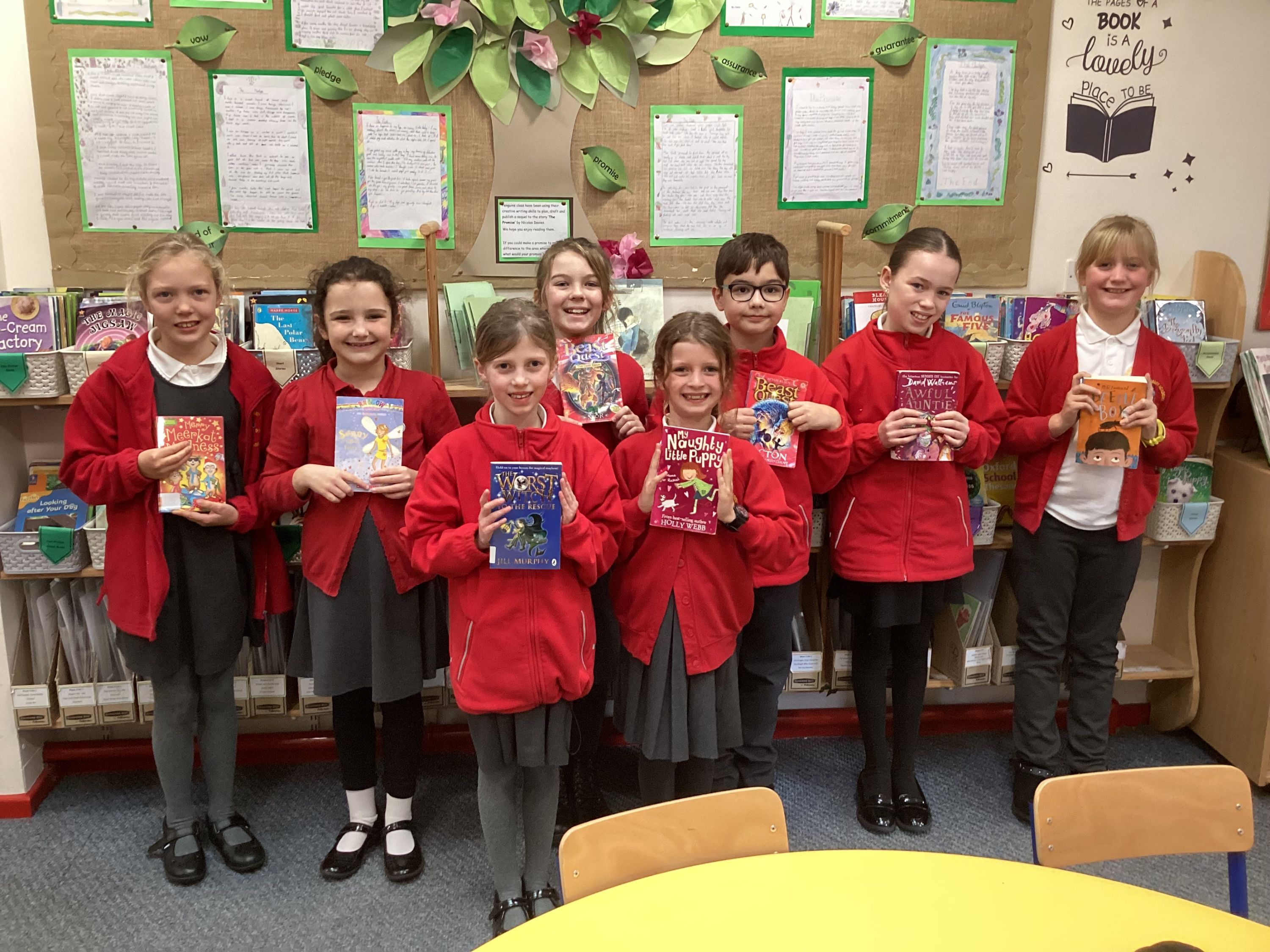
Suggested texts and ideas on how to support your child with their reading.
How can you help your child?
- Promote reading at home: encourage them to read; read to them, let them see you reading & encourage them to carry their book wherever they go – so they are always ready to read!
- Ask about the current book they are reading and their point goals. Congratulate them when they reach their goal.
- Donate AR books from our book fairs to the library so we can continue to expand our offerings for the pupils.
- Cheer on your child and start growing a reader today!
If you have any concerns or queries about this exciting system please speak to your child’s class teacher or Mr Robson
